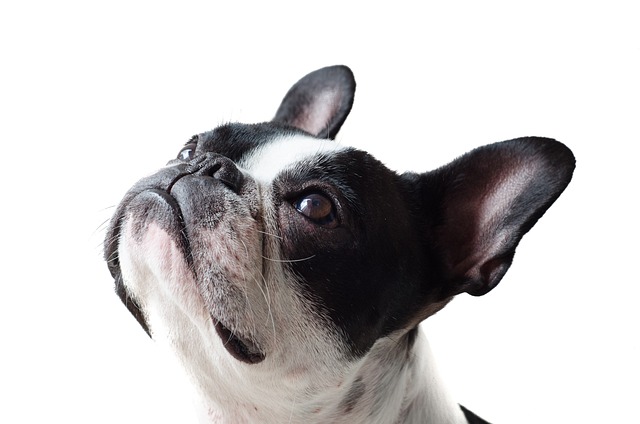
What is glaucoma in a dog?
You might notice your dog squinting more at mealtime or avoiding bright sunlight—these small changes could be early signs of a serious eye condition.
French bulldogs, with their bat-like ears and playful personalities, are a beloved breed across many households. However, their sensitive stomachs can often lead to bouts of diarrhea, leaving new owners worried and unsure of what steps to take. Recognizing the various symptoms is the first step toward helping your furry friend feel better.
One common sign is loose, watery stools that may occur more frequently than usual. You might notice your Frenchie needing to go outside more often, sometimes struggling to hold it in—especially in apartment settings where quick access to outdoor spaces isn’t always possible. This can be stressful for both pet and owner, but remember, staying calm and cleaning up promptly is key to maintaining good community relations.
Another symptom to watch for is stools with unusual colors or textures. Greenish hues might hint at something they shouldn’t have eaten, like grass, while red or black streaks could indicate blood, which requires immediate vet attention. Mucus or a foul odor are also red flags. These signs often point to underlying issues, from food intolerances to infections, so trusting your gut is crucial.
 Behavioral changes often accompany diarrhea in French bulldogs. They may become lethargic, lose interest in play, or avoid their favorite spots. Some might even show signs of discomfort, like pacing or whining. Since positive reinforcement is the cornerstone of training in many Western households, avoid scolding if accidents happen indoors—instead, focus on gentle guidance and getting them the care they need.
Behavioral changes often accompany diarrhea in French bulldogs. They may become lethargic, lose interest in play, or avoid their favorite spots. Some might even show signs of discomfort, like pacing or whining. Since positive reinforcement is the cornerstone of training in many Western households, avoid scolding if accidents happen indoors—instead, focus on gentle guidance and getting them the care they need.
Dehydration is a serious concern, especially in smaller breeds like French bulldogs. Symptoms include dry gums, sunken eyes, and reduced energy. If you notice these, offer small sips of water frequently, and contact your vet right away. Many regions require pets to be up-to-date on vaccinations, so having their medical records handy during vet visits can speed up the diagnosis process.
Preventing future episodes often ties back to their daily routine. Sudden changes in food, table scraps, or even stress from a new family member can trigger diarrhea. Stick to a consistent diet recommended for French bulldogs, avoid sharing human food (especially items like onions or chocolate that are toxic), and gradually introduce any changes to their environment. This aligns with the idea of creating a stable, loving home that most pet owners strive for.
In the end, diarrhea in French bulldogs is often manageable with prompt attention. By learning to recognize the symptoms, acting quickly, and following local pet care guidelines, you’ll be well-equipped to keep your Frenchie happy and healthy. After all, a healthy pup is a playful pup—and that’s what makes coming home so joyful.

You might notice your dog squinting more at mealtime or avoiding bright sunlight—these small changes could be early signs of a serious eye condition.

Let’s set the scene: It’s a sweltering Phoenix afternoon—105°F outside—and you rushed your 2-year-old Lab mix, Cooper, on a quick walk to “get it over with.”

Let’s get real: You’re in your Miami apartment, watching your 3-year-old Corgi, Loki, struggle to climb the stairs to your second-floor unit.

Many dog owners brush off occasional scratching as just “dog behavior,” but persistent itching often signals something more—like a food allergy.

You might first notice your dog scratching more than usual—chewing at their paws until the fur looks thin, or rubbing their face against the couch nonstop.

Let’s be real: You’re standing in your Chicago apartment, watching your 3-year-old Beagle, Max, huff and puff just to climb onto the couch.